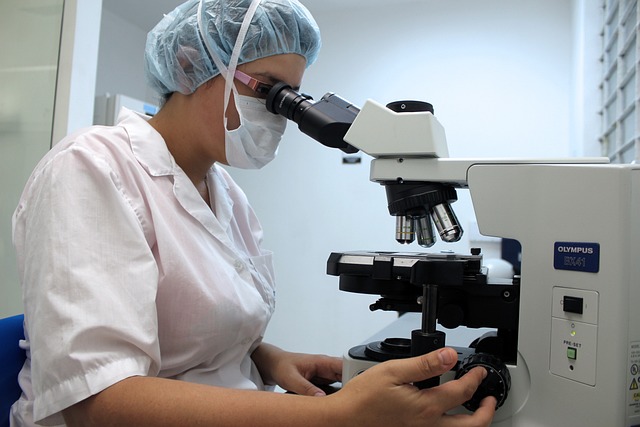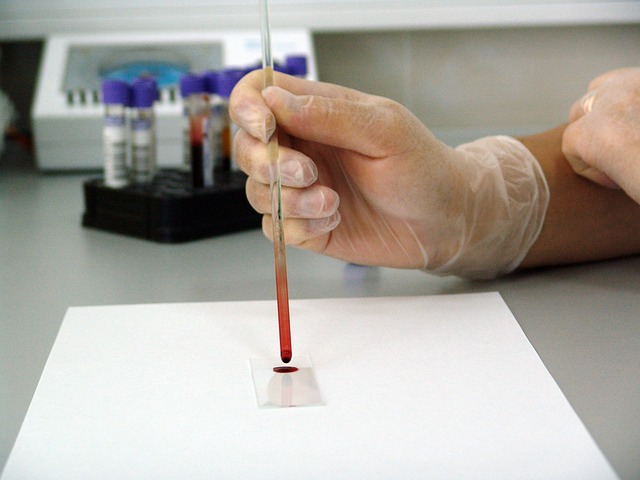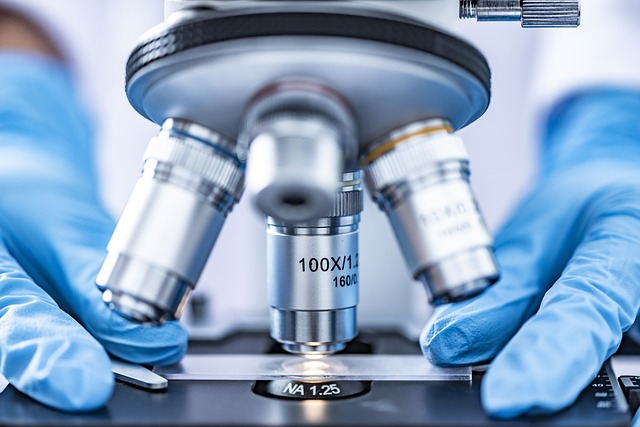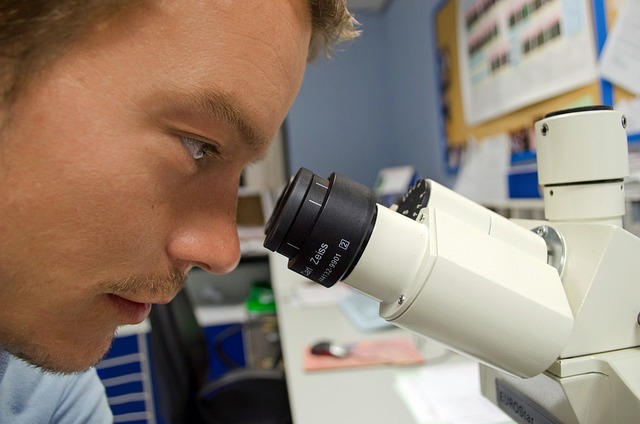Are you fascinated by the intricacies of the human body and have a keen eye for detail? If so, a career in histology might be the perfect fit for you. Histology, the study of tissues at a microscopic level, has grown significantly over the years, opening up exciting opportunities for those interested in the field.
In this article, we will explore the evolution of histology careers and uncover the various paths these health professionals can take. From traditional roles in medical laboratories to cutting-edge research positions, histology offers a wide array of career options.
With advancements in technology and research techniques, histologists now play a crucial role in diagnosing diseases, conducting research, and developing new treatments. Rapidly evolving fields such as digital pathology and molecular diagnostics present even more opportunities for those entering the histology profession.
Whether you are just starting your career or looking to make a change, this article will provide valuable insights into the evolving world of histology careers, helping you navigate the path that suits your interests and aspirations.

The Importance of Histology in the Medical Field
Histology plays a vital role in the medical field, providing valuable insights into the structure and function of tissues. Examining tissues under a microscope allows histologists to identify abnormalities, diagnose diseases, and guide treatment decisions. This information is crucial for healthcare professionals to provide accurate diagnoses and develop effective treatment plans.
Histology is especially important in fields like pathology and oncology. Pathologists rely on histological analysis to determine the nature of tumors, assess the stage of cancer, and monitor treatment response. By studying the cellular changes in tissues and organs, histologists contribute significantly to the understanding and management of various diseases.
Traditional Histology Careers and Their Roles
Traditionally, histologists have primarily worked in medical and clinical labs, supporting pathologists and other healthcare professionals in diagnosing diseases. Their main responsibilities include processing tissue samples, embedding them in paraffin wax, cutting thin sections, staining the sections, and examining them under a microscope.
Histotechnologists, who specialize in the technical aspects of histology, play a crucial role in preparing tissue samples and ensuring they are of optimal quality for analysis. They perform more complex tasks, operating and maintaining laboratory equipment, following standardized protocols, and ensuring accurate and timely results.

Histopathologists, on the other hand, are medical doctors who specialize in interpreting histological findings. They rely on the expertise of histotechnologists to provide high-quality samples for analysis. Histopathologists examine tissue sections, identify abnormalities, and provide diagnostic reports that guide patient care.
Emerging Opportunities as a Histology Technician
Advancements in technology and research techniques have opened up new and exciting opportunities in the field of histology. One such opportunity is the growing demand for histology technicians in research institutions. Histology technicians support scientists in conducting experiments, preparing specimens for analysis, and interpreting results.
Digital pathology is another area rapidly evolving and creating new opportunities for histologists. Digital pathology involves scanning histological slides and analyzing them using computer software. This technology allows for remote consultations, collaboration, and the development of large datasets for research purposes.
Molecular diagnostics is yet another emerging field where histologists can make a significant impact. By utilizing techniques such as immunohistochemistry and molecular genetic testing, histologists can analyze tissue samples at a molecular level, providing valuable information about genetic mutations, protein expression, and other biomarkers.
Specializations in Histopathology
Histology offers several specialization options for those focusing on a specific area of interest. Some common specializations include dermatopathology, neuropathology, and forensic pathology.
Dermatopathology involves the study of skin tissues and is particularly relevant in diagnosing skin diseases and skin cancer. Dermatopathologists work closely with dermatologists and play a crucial role in diagnosing and managing skin conditions.
Neuropathology focuses on studying nervous system tissues, including the brain and spinal cord. Neuropathologists are involved in the diagnosis of neurological disorders, such as Alzheimer's disease, Parkinson's disease, and brain tumors.
Forensic pathology combines histology with forensic science to investigate the cause and manner of death in cases involving criminal activity or suspicious circumstances. Forensic histologists analyze tissue samples to determine the presence of toxins, injuries, and other evidence that can help solve crimes.
Qualifications for a Career in Histology
A minimum of a bachelor's degree in a relevant field, such as biology or medical laboratory science, is typically required to pursue a career in histology. However, many employers prefer candidates with a master's degree or higher, especially for research positions or specialized roles.
In addition to formal education, histology professionals must complete a histotechnology program accredited by the National Accrediting Agency for Clinical Laboratory Sciences (NAACLS). These programs provide hands-on training in laboratory techniques, equipment operation, and safety protocols.
After completing a histotechnology program, individuals can obtain certification as a histotechnologist (HT) or histotechnician (HTL) through the American Society for Clinical Pathology (ASCP). Certification demonstrates competency and can enhance job prospects and earning potential.
Job Outlook and Salary Potential in Histology
The job outlook for histology careers is promising, with steady growth projected in the coming years. Factors such as an aging population, advancements in medical technology, and the increasing prevalence of chronic diseases contribute to the demand for histology professionals.

According to the Bureau of Labor Statistics (BLS), the median annual wage for medical and clinical laboratory technologists and technicians, which includes histology professionals, was $59,130 as of May 2022. However, salaries can vary depending on factors such as experience, location, specialization, and industry.
Histopathologists, who are medical doctors, typically earn higher salaries compared to histotechnologists and histology technicians. Furthermore, those with advanced degrees, certifications, and specialized skills may have better earning potential.
Technology Advancements in Histology
Technological advancements have revolutionized the field of histology, enhancing efficiency, accuracy, and collaboration. One significant advancement is the adoption of digital imaging systems, which capture and store high-resolution images of histological slides. These images can be easily shared, archived, and analyzed remotely.
Automation has also been crucial in improving workflow and reducing manual labor. Automated tissue processing systems, slide staining machines, and digital slide scanners have streamlined histology laboratories, enabling faster turnaround times and improved consistency in results.
Furthermore, molecular techniques, such as polymerase chain reaction (PCR) and next-generation sequencing (NGS), have expanded the capabilities of histology, allowing for the analysis of DNA, RNA, and proteins in tissue samples. These techniques have opened up new avenues for research and personalized medicine.
Networking and Professional Development Opportunities for Histologists
Networking and professional development are essential for histologists to stay updated with the latest advancements in the field and expand their career opportunities. Joining professional organizations, such as the National Society for Histotechnology (NSH) and the American Society for Investigative Pathology (ASIP), can provide access to conferences, workshops, and networking events.

Continuing education is also crucial for histology professionals to maintain their certifications and enhance their skills. Many organizations offer online courses, webinars, and workshops covering various topics, including emerging technologies, quality assurance, and specialized techniques.
Additionally, histologists can benefit from participating in research projects, publishing scientific articles, and presenting at conferences. These activities contribute to professional growth, establish credibility, and open doors to collaboration and career advancement.
Why Pursue a Career in Histology?
The field of histology continues to evolve, presenting exciting opportunities for those interested in pursuing a career in this dynamic industry. Advancements in technology, research techniques, and diagnostic tools have expanded the role of histologists, allowing them to contribute significantly to healthcare and scientific advancements.
As the demand for accurate and timely diagnostic information increases, histology professionals will continue to play a critical role in disease diagnosis, treatment planning, and research. Specializations, such as digital pathology and molecular diagnostics, offer promising career paths with potential for growth and specialization.
By staying updated with the latest advancements, networking with professionals in the field, and continuously investing in professional development, aspiring histologists can position themselves for success in this ever-evolving and rewarding field. So, if you have a passion for unraveling the mysteries of human tissues, consider exploring the diverse opportunities that histology careers have to offer.